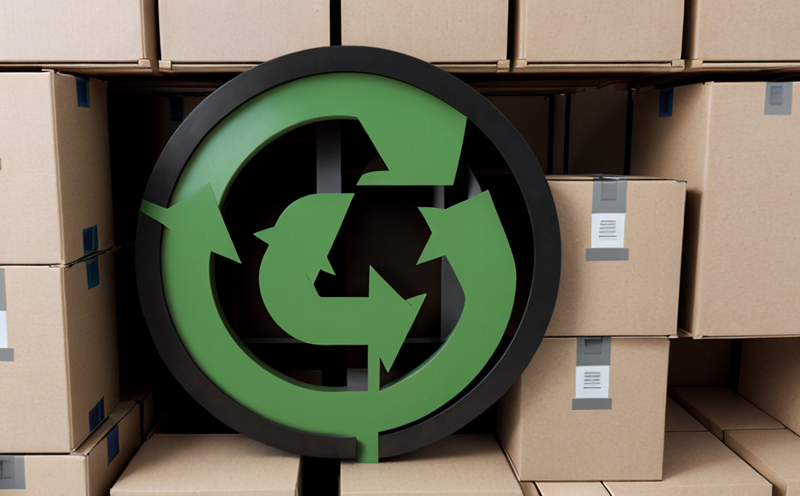ISO 14044 Environmental Impact Audits for Recycling Systems
The ISO 14044 standard provides a framework for conducting life cycle assessment (LCA) and environmental management systems. When applied to recycling systems, these audits help identify the environmental impacts associated with various stages of material processing, from raw material extraction through production, use, and end-of-life disposal. This service is essential for companies looking to enhance their sustainability credentials by understanding and reducing the ecological footprint of their recycling processes.
The audit process involves a series of structured steps aimed at providing comprehensive insights into the environmental impacts of recycling systems. It begins with the establishment of clear objectives, followed by scoping the activities that will be included in the assessment. The next step is to gather data on inputs and outputs throughout the lifecycle stages. This includes raw materials used, energy consumption, water usage, emissions, waste generation, and other relevant metrics.
Data collection can be challenging but is crucial for accurate assessments. It may involve direct measurement of resources consumed during production processes or estimation based on available literature if precise data are not readily accessible. Once all necessary information has been compiled, it undergoes rigorous analysis to determine the environmental impacts at each stage of the lifecycle.
A key component of this service is ensuring compliance with international standards such as ISO 14044. Compliance ensures that methodologies used adhere to best practices recognized globally. This not only enhances credibility but also facilitates easier communication among stakeholders involved in various stages of recycling operations.
In addition to identifying environmental impacts, these audits play a vital role in supporting decision-making processes within organizations committed to sustainable development goals. By providing detailed insights into how different factors contribute to overall environmental performance, managers can make informed choices about process improvements aimed at minimizing adverse effects on the environment while maximizing resource efficiency.
The results from ISO 14044 audits serve multiple purposes beyond mere compliance verification; they offer valuable data points that can guide strategic planning efforts focused on achieving long-term sustainability objectives. For instance, they help prioritize areas where investments could yield significant reductions in greenhouse gas emissions or waste generation rates without compromising product quality.
Moreover, the insights gained through these audits contribute to fostering innovation within recycling sectors by encouraging continuous improvement initiatives aimed at developing more efficient and eco-friendly technologies. Ultimately, implementing ISO 14044 standards helps businesses align their operations with broader societal expectations around environmental responsibility.
Benefits of ISO 14044 Environmental Impact Audits for Recycling Systems
The implementation of ISO 14044 environmental impact audits brings numerous benefits to organizations involved in recycling systems:
- Enhanced Sustainability Credentials: Demonstrating commitment to sustainable practices can attract customers, investors, and partners who prioritize environmental responsibility.
- Better Decision Making: Comprehensive data helps make more informed decisions about process improvements and resource allocation.
- Regulatory Compliance: Ensures adherence to relevant laws and regulations regarding waste management and recycling practices globally.
- Innovation: Encourages the development of new technologies and methods designed to reduce environmental impact further.
- Promoting Transparency: Provides clear, verifiable evidence supporting claims made about a company’s environmental performance.
- Cost Efficiency: Identifies opportunities for cost savings by optimizing resource usage and minimizing waste generation.
- Improved Brand Image: Positive public perception enhances brand value and reputation among consumers and stakeholders alike.
In summary, ISO 14044 environmental impact audits offer tangible advantages that contribute to a company’s overall sustainability strategy. These include enhanced credibility, better decision-making capabilities, regulatory compliance, innovation encouragement, transparency promotion, cost efficiency enhancement, and improved brand image.
Why Choose Eurolab for ISO 14044 Environmental Impact Audits?
At Eurolab, we pride ourselves on offering world-class services tailored specifically to meet the needs of our clients across diverse sectors. Our expertise lies in providing reliable and accurate environmental impact assessments using state-of-the-art techniques aligned with international standards like ISO 14044.
- Expertise: Our team comprises highly skilled professionals with extensive experience conducting similar audits for numerous industries.
- Accurate Data Collection: Utilizing advanced instrumentation and methodologies ensures precise measurement of all relevant parameters throughout the lifecycle stages.
- Prompt Turnaround Time: We understand the importance of timely results, so we strive to deliver reports within agreed-upon timelines without compromising quality.
- Comprehensive Reporting: Our detailed reports provide actionable recommendations based on findings from the audit process.
- Cost-Effective Solutions: By offering competitive pricing and value-added services, Eurolab ensures clients receive excellent service at reasonable costs.
- Certified Compliance: All our processes are certified to ISO 14001:2015 ensuring consistent quality and reliability of results.
By choosing Eurolab for your ISO 14044 environmental impact audits, you gain access to a team of dedicated professionals committed to helping you achieve your sustainability goals effectively and efficiently. Whether you're looking to enhance your company's reputation or simply ensure compliance with regulatory requirements, our services will provide the necessary support.
Environmental and Sustainability Contributions Through ISO 14044 Audits
- Emission Reduction: Identifying sources of emissions allows for targeted mitigation strategies that reduce harmful pollutants entering the atmosphere.
- Resource Efficiency: Understanding resource flows helps optimize usage, reducing waste and conserving natural resources.
- Biodiversity Conservation: Assessments reveal impacts on local ecosystems enabling proactive measures to protect biodiversity.
- Water Quality Improvement: Detecting pollutants in water bodies informs corrective actions needed to restore purity levels.
- Air Quality Enhancement: Monitoring air quality provides insights into pollution sources prompting steps towards cleaner skies.
- Material Circularity: Evaluating material flows promotes circular economy principles enhancing reuse and recycling practices.
The environmental and sustainability contributions of ISO 14044 audits extend far beyond immediate operational improvements. They foster a culture of continuous improvement fostering long-term positive impacts on the environment.





